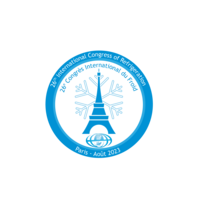
Document IIF
Évaluation numérique des mélanges à base de CO2 pour les systèmes frigorifiques en mettant l’accent sur le processus d’évaporation.
Numerical assessment of CO2-based mixtures for refrigeration systems: focus on the evaporation process.
Numéro : 0544
Auteurs : VACCARO G., ANDREINI N., CARAMASCHI M., TALLURI L., ELMEGAARD B., MILAZZO A.
Résumé
A large number of refrigeration systems operate on a stream that is not changing phase, i.e. has a finite heat capacity. The matching between the cooled stream and the evaporation of a pure refrigerant causes therefore significant irreversibility in the heat exchange. The use of mixtures is a well-known option for the mitigation of this problem. In this work, the use of a CO2-based mixture is proposed to allow the possibility of matching variable-temperature heat sources with the glide of the working fluid in the evaporator to minimize the heat exchange irreversibility. Modelling of a mini-channel evaporator by means of numerical techniques, accounting for the variable fluid composition, is presented. Several flow boiling correlations are assessed for pure CO2 (170<G<900) and CO2-propane blends (200<G<650). An optimized correlation for CO2-propane is proposed. As a final result, a high fidelity CO2 correlation for flow boiling is presented, which is also able to predict quite accurately the CO2-propane mixture heat transfer coefficient.
Documents disponibles
Format PDF
Pages : 12 p.
Disponible
Prix public
20 €
Prix membre*
Gratuit
* meilleur tarif applicable selon le type d'adhésion (voir le détail des avantages des adhésions individuelles et collectives)
Détails
- Titre original : Numerical assessment of CO2-based mixtures for refrigeration systems: focus on the evaporation process.
- Identifiant de la fiche : 30031631
- Langues : Anglais
- Sujet : Technologie
- Source : Proceedings of the 26th IIR International Congress of Refrigeration: Paris , France, August 21-25, 2023.
- Date d'édition : 21/08/2023
- DOI : http://dx.doi.org/10.18462/iir.icr.2023.0544
Liens
Voir d'autres communications du même compte rendu (491)
Voir le compte rendu de la conférence
Indexation
-
Thèmes :
CO2;
Mélanges;
Hydrocarbures;
Transfert de chaleur - Mots-clés : CO2; Propane; Mélange; R744; R290; Modélisation; Ébullition en écoulement; Transfert de chaleur; Corrélation
-
Experimental study of flow boiling of propane i...
- Auteurs : LILLO G., MASTRULLO R., MAURO A. W., et al.
- Date : 18/06/2018
- Langues : Anglais
- Source : 13th IIR Gustav Lorentzen Conference on Natural Refrigerants (GL2018). Proceedings. Valencia, Spain, June 18-20th 2018.
- Formats : PDF
Voir la fiche
-
Effect of lubricating oil on flow boiling heat ...
- Auteurs : SAITOH S., DANG C., HIHARA E.
- Date : 18/06/2018
- Langues : Anglais
- Source : 13th IIR Gustav Lorentzen Conference on Natural Refrigerants (GL2018). Proceedings. Valencia, Spain, June 18-20th 2018.
- Formats : PDF
Voir la fiche
-
Investigations on the flow boiling heat transfe...
- Auteurs : WETZEL M., SAITO Y., KIND M., et al.
- Date : 21/08/2011
- Langues : Anglais
- Source : Proceedings of the 23rd IIR International Congress of Refrigeration: Prague, Czech Republic, August 21-26, 2011. Overarching theme: Refrigeration for Sustainable Development.
- Formats : PDF
Voir la fiche
-
Experimental investigation of evaporation of pr...
- Auteurs : ALLYMEHR E., EIKEVIK T. M., HAFNER A.
- Date : 24/08/2019
- Langues : Anglais
- Source : Proceedings of the 25th IIR International Congress of Refrigeration: Montréal , Canada, August 24-30, 2019.
- Formats : PDF
Voir la fiche
-
Flow boiling heat transfer and pressure drop of...
- Auteurs : COPETTI J., MACAGNAN M., OLIVEIRA J., et al.
- Date : 24/08/2019
- Langues : Anglais
- Source : Proceedings of the 25th IIR International Congress of Refrigeration: Montréal , Canada, August 24-30, 2019.
- Formats : PDF
Voir la fiche
